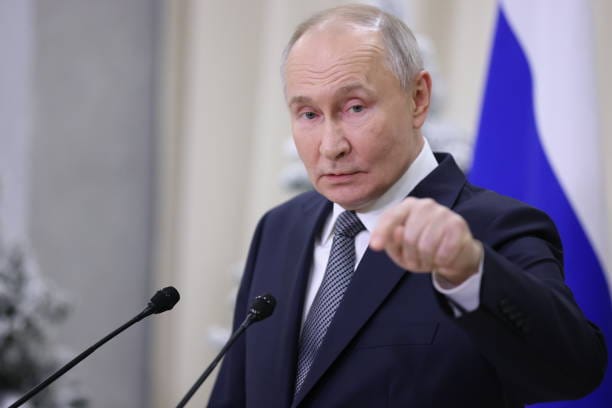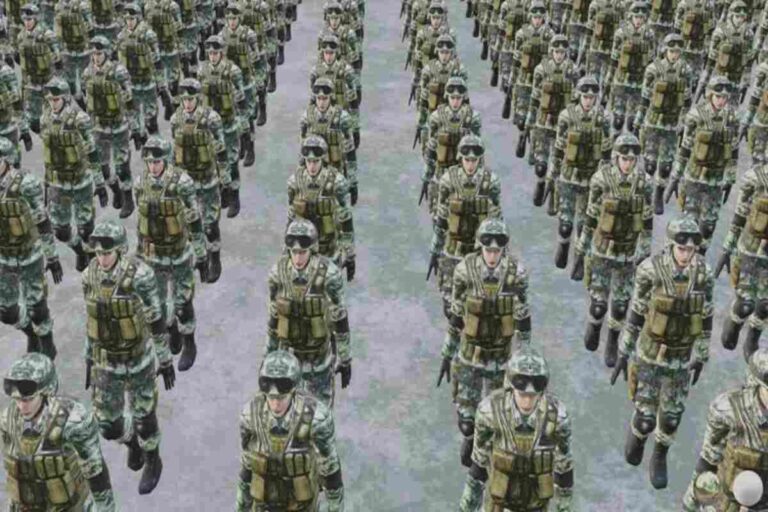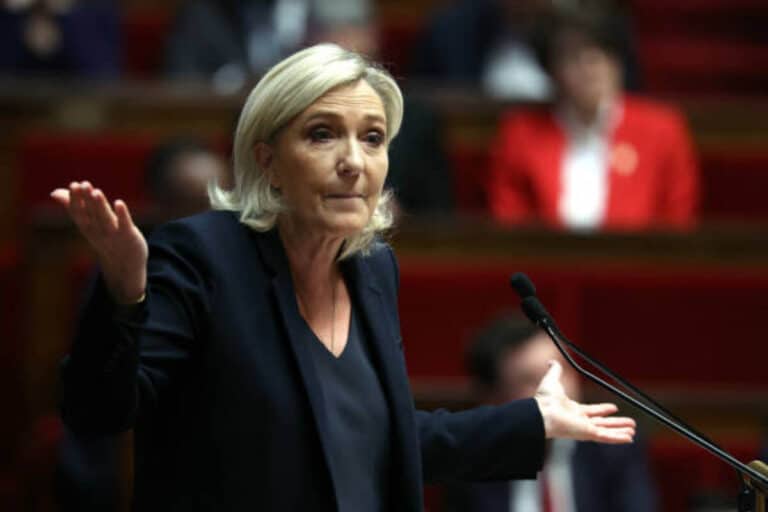

President Vladimir Putin speaks during his press conference after the Supreme Eurasian Economic Council Meeting, December 26, 2024 in Igora ski resort, north of Saint Petersburg, Russia. (Photo by Contributor/Getty Images)
(EPICSTORIAN) Russian President Vladimir Putin has highlighted 2024 as a transformative, ‘victory’ year for Russia’s military objectives, particularly in Ukraine.
Speaking at the Russian Defense Ministry’s annual board meeting on December 16, Putin asserted, “The outgoing year has been crucial in achieving the goals of the special military operation.”
The statement pointed out afresh Russia’s focus on securing its claims in Ukraine and advancing its long-term geopolitical ambitions.
Days later, during his annual call-in program on December 19, Putin reiterated Russia’s progress, claiming that forces were making strides toward achieving “priority goals.”
The painful reality since the war remains that, despite these declarations, Russia has yet to fully control the four Ukrainian regions it annexed following its February 2022 reinvasion. Nevertheless, Putin’s messaging appears crafted to frame the conflict as a strategic victory, even as challenges persist on the battlefield.
Long-Term Strategy in Annexed Territories
Putin’s rhetoric aligns with a broader plan to consolidate control over not only the four contested regions—Donetsk, Luhansk, Zaporizhzhia, and Kherson—but also Crimea and additional territories Russia has claimed as its own.
Observers note that Moscow’s horizon for full integration of these areas stretches as far as 2030, reflecting the Kremlin’s calculated approach to both military and administrative control.
The emphasis on 2024 as a turning point comes amid mounting domestic and international expert assessment of Russia’s military campaign. Putin is positioning his narrative to frame incremental territorial gains as evidence of success, potentially setting the stage for presenting these outcomes as victories in the coming year.
Framing Victory in the Face of Uncertainty
Analysts suggest that Putin’s strategy is not solely aimed at international audiences but also designed to bolster domestic morale. The Kremlin’s portrayal of territorial consolidation as inevitable serves a dual purpose: shoring up public support and justifying the significant human and economic costs of the ongoing conflict.
However, the path to achieving these goals remains fraught with obstacles. Ukrainian forces, supported by Western allies, continue to resist Russian advances, and Moscow faces logistical and strategic challenges on multiple fronts.
While Putin seeks to assert dominance, the reality on the ground shows the complexities of achieving complete control over annexed territories.
Prolonged Campaign with Broader Implications
Putin’s vision for the annexed regions extends beyond military operations, which includes economic integration and cultural assimilation efforts. These strategic measures aim to solidify Russia’s claims and diminish Ukrainian influence through war, further entrenching Moscow’s presence in contested areas.
As 2024 draws to a close, the Kremlin’s narrative emphasizes self-satisfying progress and resilience at the expense of a sovereign nation. Yet, the ongoing resistance from Ukraine questions the feasibility of Putin’s ambitions.
The coming year will likely see intensified efforts by Russia to consolidate its position in Ukraine while battling with the geopolitical and domestic shortcomings posed by its military campaign.






